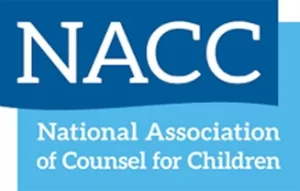Understanding the Case and Its Implications
The American Civil Liberties Union (ACLU) of Michigan is taking a significant stand by suing to overturn the state’s ban on Medicaid funding for abortions. This case is rooted in the argument that the ban violates the constitutional reproductive rights amendment that Michigan voters passed in 2022.
The Impact of Medicaid’s Abortion Funding Ban
Susan Rosas, CEO of YWCA Kalamazoo, the plaintiff in the case, emphasizes, “The choice not to be a parent is irrelevant if obtaining an abortion is financially out of reach.” Rosas argues that by not covering abortion services, Medicaid disregards the autonomy of Michigan women and the will of Michigan voters. This policy creates a stark divide in abortion access: those who can afford private health insurance can access abortions, while those dependent on Medicaid cannot.
YWCA Kalamazoo’s reproductive health fund has supported the abortion costs for around 150 Medicaid enrollees in the fiscal years 2022 and 2023. Rosas highlights that this money could be redirected to other vital services such as doula support and low-cost childcare if Medicaid covered abortion costs.
Discrimination and Disproportionate Impact
Rosas points out that the ban is inherently discriminatory. Black residents make up a disproportionate share of Medicaid enrollees in Michigan, and Black women are three times more likely to die from pregnancy-related causes than white women in the U.S. “When Medicaid ignores the will of the Michigan voter and arbitrarily restricts access to health care, Medicaid is disproportionately restricting access to care, specifically for people of color,” she asserts.
Opposing Viewpoints on Public Funding for Abortions
On the other side, opponents argue that overturning the ban would force taxpayers to subsidize abortions, regardless of their personal beliefs. Amber Roseboom, President of Right to Life of Michigan, states, “Today, abortion-obsessed activists are again appealing to the courts to achieve what they failed to garner support for in the legislative process, now hoping to force Michigan taxpayers, already facing the financial burdens of high inflation, to pay for other people’s abortions through Medicaid dollars.”
Roseboom criticizes the activists, suggesting that they are prioritizing their special interest groups over the will of the taxpayers. She argues that there is overwhelming opposition to using taxpayer funds for abortions.
The Broader Implications
This case is a crucial step for abortion rights advocates in clarifying the scope of the language in Proposal 3, the constitutional amendment passed in 2022. The outcome of this case could significantly impact how reproductive rights are interpreted and enforced in Michigan.
For more details on reproductive rights and legal battles, visit ACLU’s Reproductive Freedom Project.
Stay Informed
As this case progresses, it’s essential to stay informed about your rights and the implications of legal decisions on reproductive health. For further reading, check out resources from Planned Parenthood and The Detroit News
If you face legal challenges, we are here to help you navigate the legal system and protect your rights. Contact us today to schedule a free consultation to discuss your case and explore your legal options.











